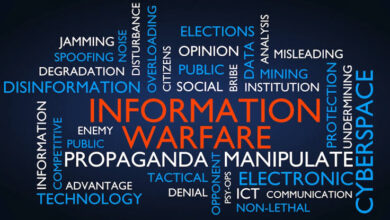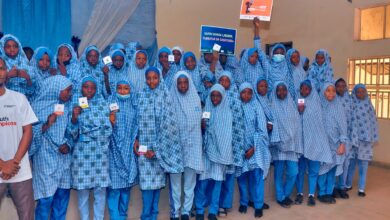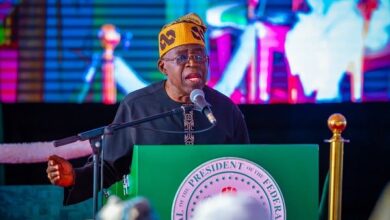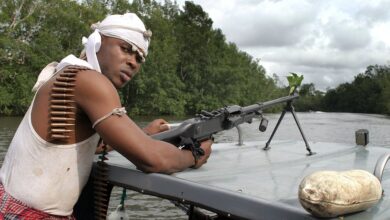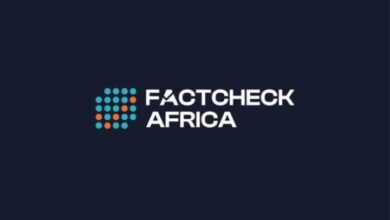IFD:My Journey as a Fact Checker with FactCheckAfrica; Mustapha Lawal
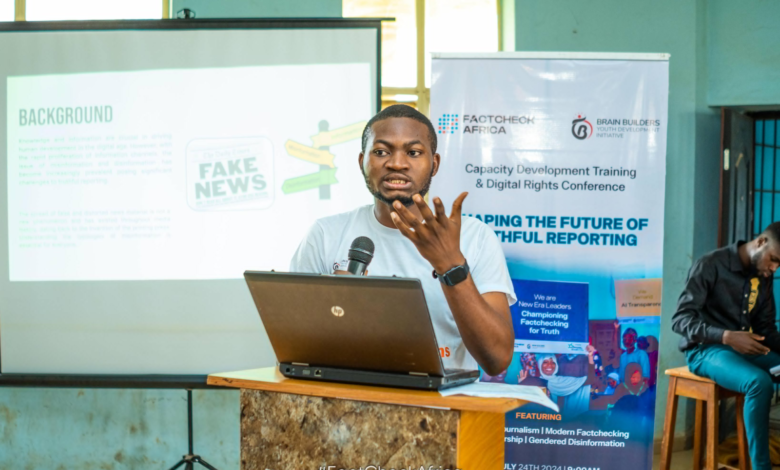
Happy International Fact-Checking Day!
As we celebrate the invaluable contributions of fact-checkers worldwide—professionals dedicated to combating misinformation and upholding the integrity of information—I take this moment to reflect on my journey with FactCheckAfrica, an organization leading efforts to counter disinformation while promoting media and information literacy across Nigeria and beyond.
From Curiosity to Impact
In 2020, the world seemed to come to a halt, and so did my life as an undergraduate. With the pandemic-induced lockdown prolonging my time at university and leaving me with unfinished projects and unwritten exams, I found myself searching for purpose in the most challenging of times. Little did I know, this search would lead me down a path that would shape my career and redefine my role in journalism. The journey began when I stumbled upon an application for KnowCovid19, a project designed to counter misinformation during the pandemic. While my initial skills were inadequate for the opportunity, the process of applying kindled a spark in me. I began to understand the sheer dangers of misinformation and disinformation. Witnessing the real-time consequences of distorted facts on communities was both humbling and alarming. It was a pivotal moment when I resolved to be part of the solution.
In 2021, I found the perfect opportunity to deepen my interest in combating misinformation: a week-long training on fact-checking organized by Brain Builders Youth Development Initiative. This experience opened new doors, including a chance to join the factcheckElections team as Nigeria prepared for the 2023 general elections. The timing couldn’t have been better; I had just graduated, and this role allowed me to merge my curiosity, journalistic skills, and passion for accountability. When the FactCheckElections team transitioned to become FactCheckAfrica, its broadened scope (covering health, security, governance, climate change, and digital rights) inspired me further. Since then, I’ve embraced my role as a fact-checker, separating truth from fiction and promoting media literacy. From debunking hundreds of claims to leading media literacy training sessions, my work has been driven by the belief that truth is essential to societal progress.
Navigating the Challenges of a Digital World
In today’s information landscape, where social media and digital platforms allow for the rapid spread of both facts and falsehoods, the role of fact-checkers has never been more critical. Gone are the days when the dissemination of news was the sole responsibility of trained journalists in traditional media houses. Today, anyone with internet access can publish content that reaches thousands, sometimes millions of people within seconds.
This reality presents both opportunities and dangers. While digital platforms have democratized access to information, they have also created an ecosystem where misinformation can spread unchecked. In my time at FactCheckAfrica, I have seen blatant falsehoods disguised as truth and widely accepted by the public. I have encountered manipulated content designed to mislead, influence political discourse, and even incite violence. The speed at which misinformation travels often surpasses the capacity of fact-checkers to debunk it in real time.
Despite these challenges, I remain committed to this work because of its impact. Over the past few years, I have fact-checked hundreds of claims, produced numerous explainers and media literacy articles, and led several fact-checking and digital rights training sessions (as seen here).
Contributions and Achievements
My journey with FactCheckAfrica has been filled with several contributions and many fulfilling milestones. One of the most rewarding moments was attending our first physical meeting and training in Ibadan in January 2023. It was followed by a presidential election situation room set up in Ilorin, which solidified my sense of purpose.
In 2024, I was honoured to receive the Fact Checker of the Year award in recognition of my contributions to the organization. Beyond that, my work has extended beyond fact-checking claims. I’ve had the privilege to co-manage the first West Africa AI Journalism Fellowship, deliver media literacy presentations across Nigerian campuses, and collaborate on projects analyzing Foreign Interference and Misinformation Influence (FIMI) campaigns.
Internationally, I’ve represented FactCheckAfrica at the Africa Facts Summit in Accra, Ghana, where we showcased our groundbreaking AI-powered fact-checking tool, MyAIFactChecker.org, and engaged with fact-checkers from across the continent. Additionally, participating in the Regional Conference on Countering Information Manipulation in West Africa allowed us to highlight the devastating impacts of disinformation and foster collaborations across the region.
Building a Legacy of Truth
Looking ahead, I envision a future where fact-checking is not just a reactive effort but an integral part of media literacy education for all. The truth, though often overshadowed in the digital noise, is indispensable to societal progress. Fact-checkers are the guardians of that truth, standing at the intersection of accountability and transparency.
On this International Fact-Checking Day, I urge everyone to support this mission. Whether by sharing verified information, questioning suspicious claims, or advocating for digital literacy, we all have a role to play in combating misinformation.
As I reflect on my journey with FactCheckAfrica, I am grateful for the opportunities to learn, grow, and contribute to the fight for truth. Together, we can ensure that the integrity of information is preserved—one fact-check at a time.
